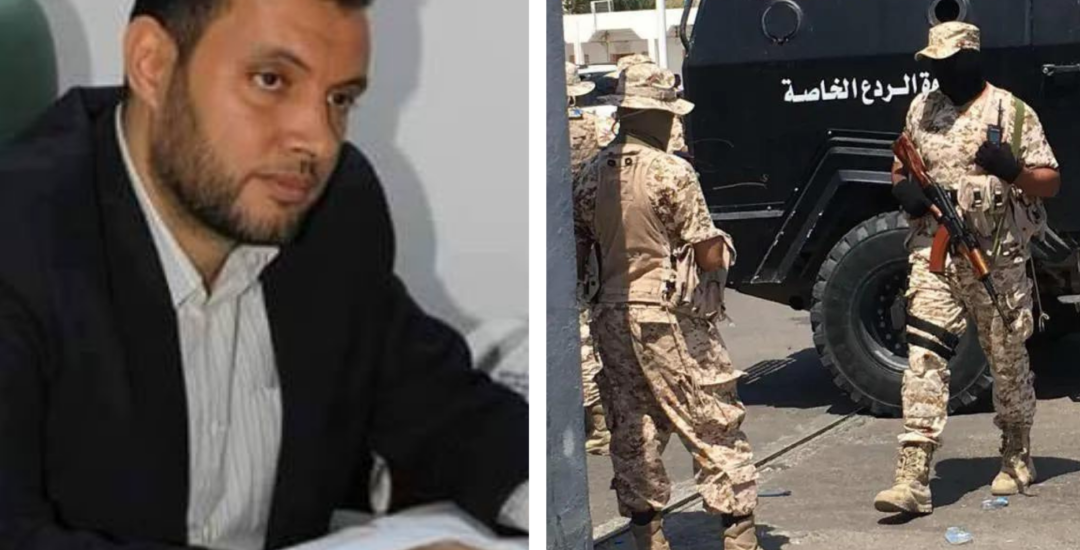
Political activist and former deputy minister of war victims and missing persons, Dr. Abdurahman Mohamed Arjili Ghoma has been released, six years after his abduction in Libya.
Abdul Rahman was abducted on 8 June 2016 by armed men in the Libyan capital, Tripoli, while he was on his way to work. On 12 June 2017, Alkarama submitted an urgent appeal to the UN Working Group on Enforced and Involuntary Disappearances (WGEID). In its appeal, Alkarama requested the experts to intervene promptly with the Libyan authorities and urge them to release him immediately, inform his family about of his fate and that he be placed under the protection of the law without delay.
Six years of suffering
Three days after his abduction, his family received information that he was being held by members of a militia close to the so-called RADA'A forces, led by Ahmed Kablane. They went to their premises on the same day, but the latter denied his detention and threatened the family to dissuade them from continuing their search.
After many steps, the victim's family managed to contact a person close to Ahmed Kablane who promised to help them obtain information about Abdul Rahman's fate. A few days later, they received confirmation that the latter was indeed detained by the RADA'A forces. However, his release was being conditioned, according to the intermediary, on the payment of a ransom of six million dinars.
In September 2017, Abdul Rahman's wife had contacted RADA'A forces via social media and was eventually allowed to speak to him by phone. He had informed her that he had been detained for 15 months in an unknown location, before being recently transferred to the Mitiga Air Base. Following this call, she was allowed to visit him three times in the following months, the last of which took place more than a year ago.
Abdul Rahman and his family had kept in touch through rare phone calls. However, after their last call on 15 June 2020, his wife was denied any further contact with him, either by call or visit. Her interlocutor also refused to give her any further information about his whereabouts and state of health. Knowing that he had suffered from leukemia, his family was weary for his life.
During his tenure as Deputy Minister for War Victims and Missing Persons, Abdul Rahman denounced serious human rights violations, including enforced disappearances, committed by certain armed groups. Thus, his family feared that his abduction was be a form of reprisals for his positions.
